COP26
COP26

The Conference of Parties (COP) is the decision-making body responsible for monitoring and reviewing UNFCCC recommendations on global warming and climate change.reviewing UNFCCC recommendations on global warming and climate change.
International Efforts:
Last 25 COPs since 1995, have failed to limit the Global Warming.
The Global Leadership is yet to provide a clear direction for mitigating Climate Change impacts.
COP-26 starting from 31 Oct 2021 could be the last chance for Humanity to avoid catastrophic decline.
The Main themes of COP 26:
- Limiting warming to 1.5 degrees
- Global emissions must halve by 2030
- Globally reach ‘net-zero’ by 2050
- Mobilize Climate Finance
COP 21 at Paris in 2015 saw over 195 countries pledging NDCs to reduce CO2 emissions, But post- pandemic Economic recovery is seeing large rebound to Coal & Oil use with 2nd largest annual increase in CO2 emissions in the History
Will COP 26 be hijacked by finance issues, without committing emission reductions?
Taken from: CCP New Bulletin October 2021 https://www.climatecollectivepune.org/
Six demands could be the difference between small island states thriving or being submerged by rising sea levels https://www.facebook.com/commonwealthorg/posts/4728411437223798
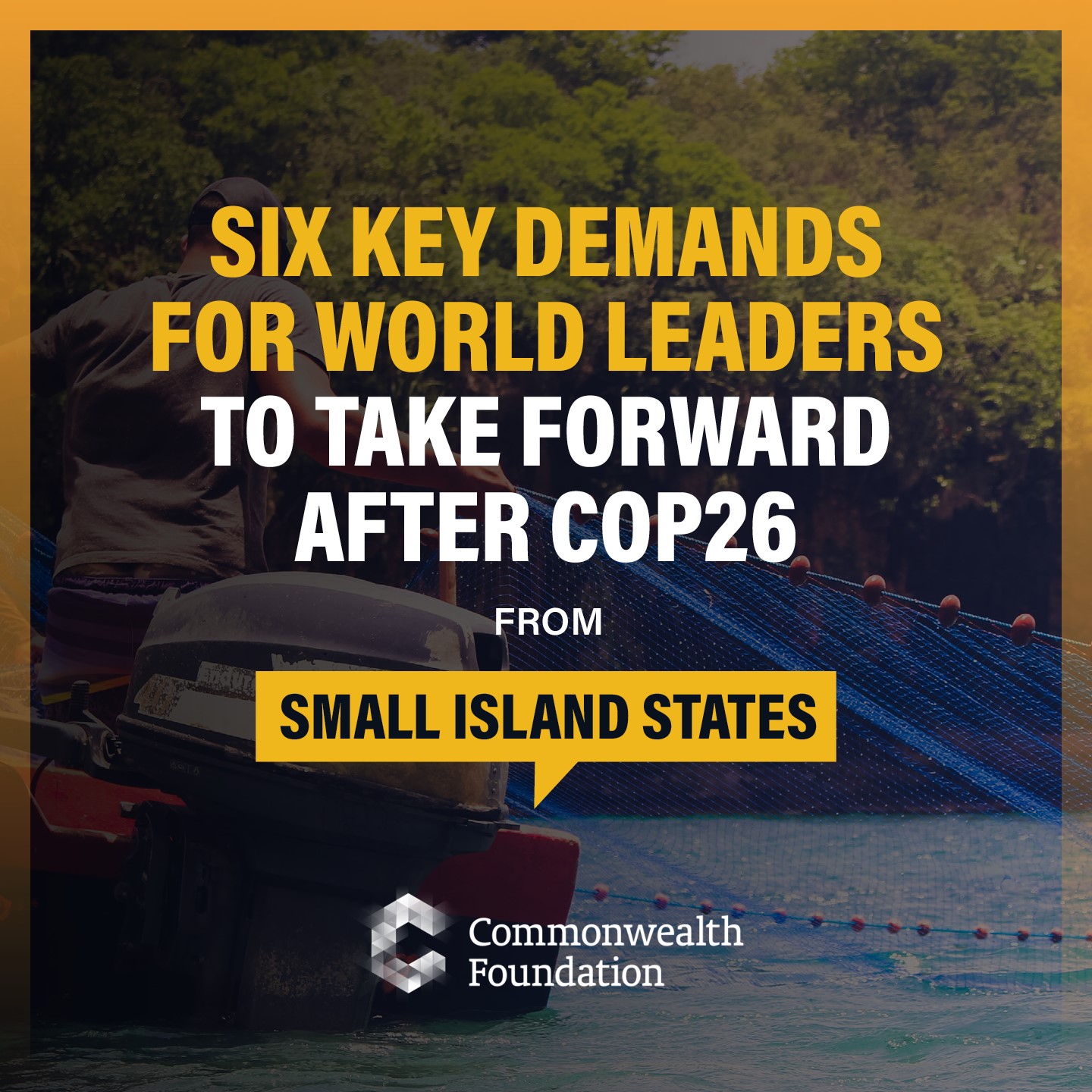
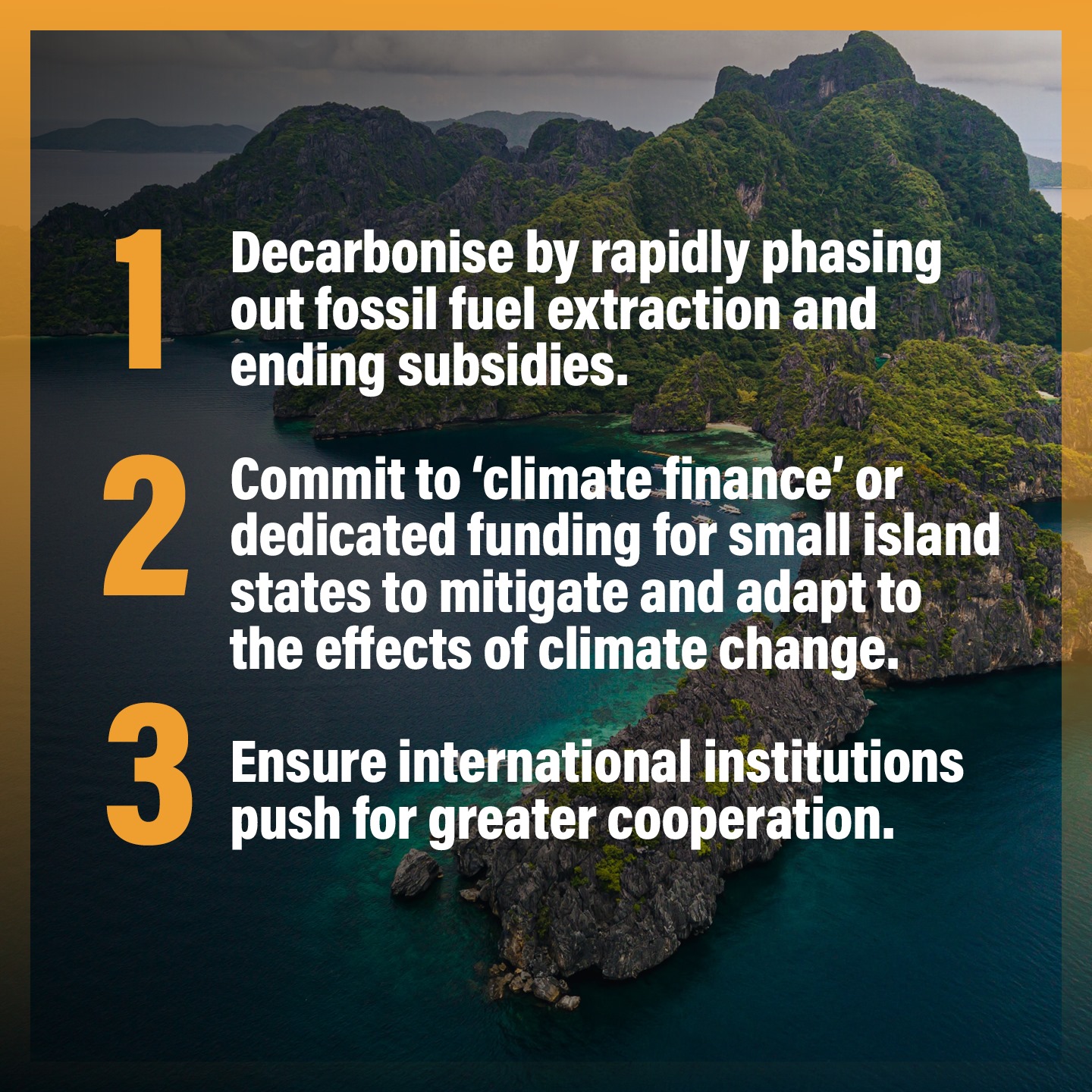
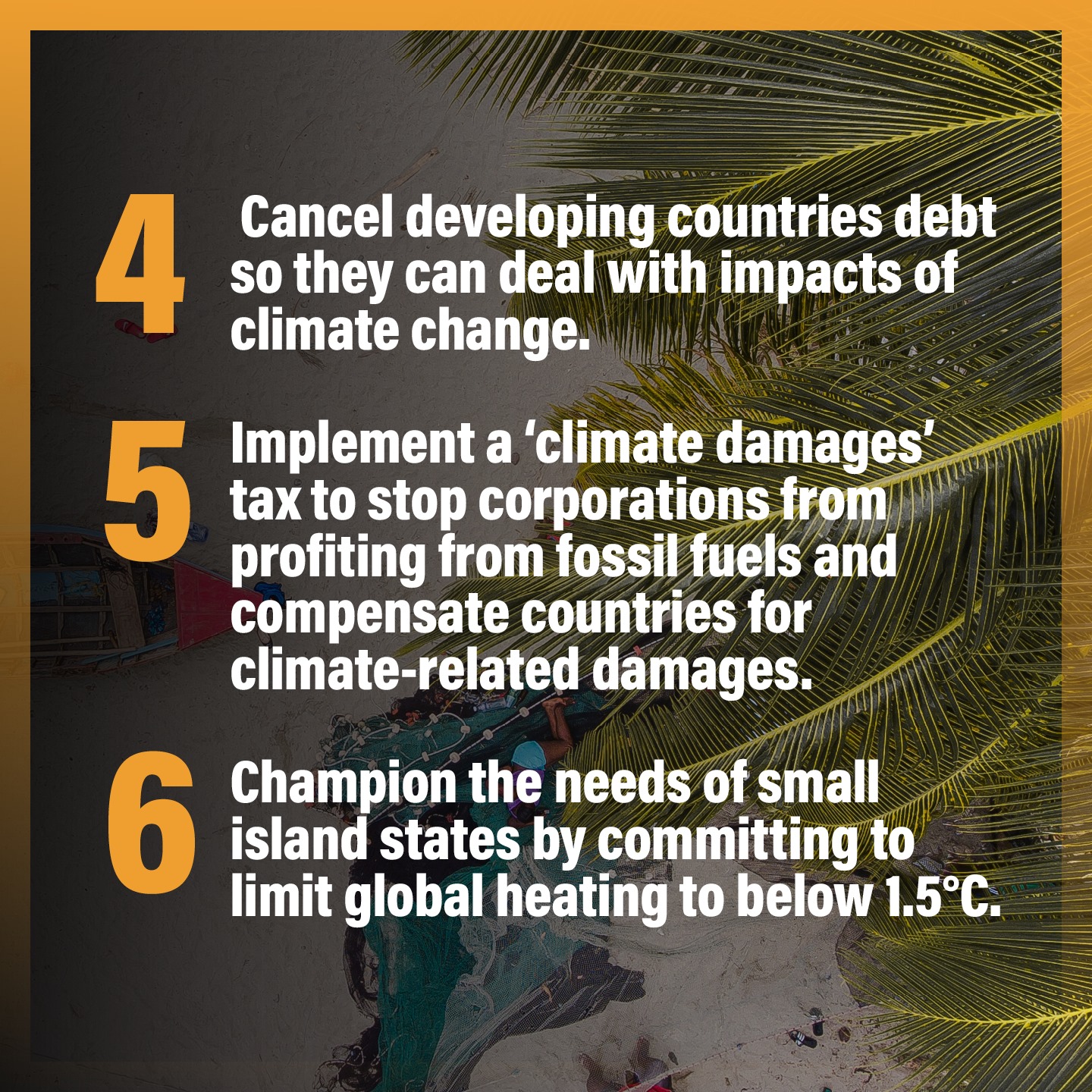
G20 ROME LEADERS’ DECLARATION https://www.g20.org/wp-content/uploads/2021/10/G20-ROME-LEADERS-DECLARATION.pdf
Top Takeaways from the UN World Leaders Summit at COP26 https://www.wri.org/insights/top-takeaways-un-world-leaders-summit-cop26
November 4, 2021 By Helen Mountford, David Waskow, Jamal Srouji, Frances Seymour, Lorena Gonzalez and Chirag Gajjar
Over 140 countries submitted updated 2030 climate plans, or nationally determined contributions (NDCs), under the Paris Climate Agreement in advance of COP26. https://www.climatewatchdata.org/2020-ndc-tracker
COP26: Unpacking India’s Major New Climate Targets
by Apurba Mitra, Chirag Gajjar and Ulka Kelkar - November 02, 2021 https://wri-india.org/blog/cop26-unpacking-india%E2%80%99s-major-new-climate-targets
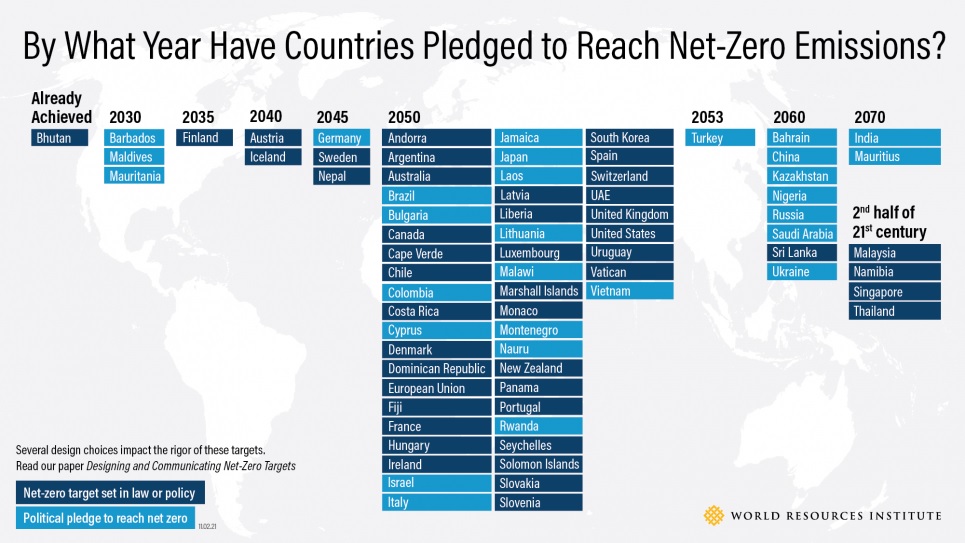
The talks need to deliver three things:
First, COP26 negotiations must conclude with countries agreeing that major emitters come back within the next couple of years to step up their 2030 targets further to align with the 1.5 degrees C goal. The only way for this goal to remain in reach is if major emitters rapidly drive down emissions in the next decade — much more than they have committed to already.
Second, developing countries deserve much more confidence that finance pledges will be met. Developed countries must reassure developing countries that shortfalls in 2020 and beyond will be filled and that there will be a significant increase in finance for adaptation and loss and damage. Glasgow should also address matters of quality of climate finance, especially to ensure that the needs and priorities of developing countries are met without creating additional debt burden.
Finally, the outstanding rules of the Paris Agreement must put the right conditions in place to accelerate efforts to cut emissions and deliver finance to developing countries. It is more important to get the rules right than to adopt rules that are weak and would undermine the global accord.
'Capitalism is killing the planet': Protesters rally in Glasgow's COP26" https://www.deccanherald.com/international/world-news-politics/capitalism-is-killing-the-planet-protesters-rally-in-glasgows-cop26-1047887.html
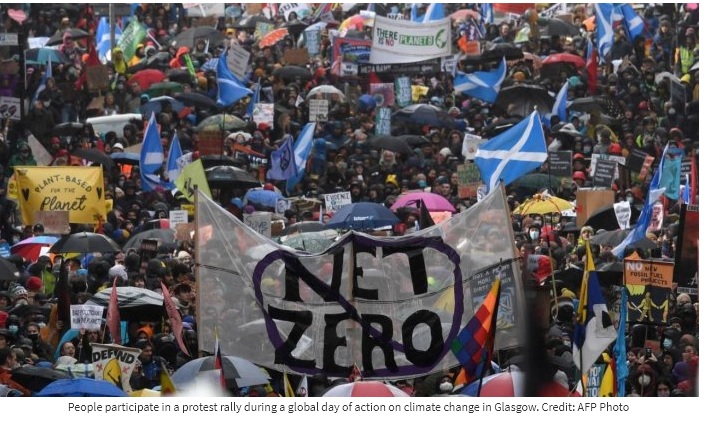
At COP26, Modi outlined a net zero emissions target by 2070 for India.
The new announcements put forth a clear ambition of the Modi government to tackle climate change more aggressively. India is targeting to increase its low-carbon power capacity to 500 gigawatts (GW) by 2030 and meet 50 per cent of its total energy requirements by 2030.
Fitch Soutions said "We highlight that these pledges pose a mounting upside risk to our forecasted 313 GW of installed low carbon power capacity, including nuclear, hydro and non-hydropower renewables by 2030," Non-hydropower renewables will make up the vast majority, 83 per cent, of this growth highlighting the significance of the wind and solar sub-sectors.
"We highlight that the market will not reach the Modi government's previous plans to develop 175 GW of renewables capacity by 2022 and will fall short with just 116 GW installed by end 2021.
"We also highlight increased risks to the successful continuation of renewables auctions as well as the development of recently selected projects within those tenders," it said. We are bearish on the prospects of this being sufficient to ensure the smooth integration of renewables capacity into the grid,
Notes from CoP-26: Third report from the corridors of COP-26 by Soumya Dutta,SAPACC https://www.youtube.com/watch?v=-CMrPSXMkVw
Nov 5, 2021 CoP 26 begins : What to expect and what not?
Presented by Soumya Dutta (SAPACC) Speak about the Net zero commitments of India and other countries as too little too little. Also critigues the forestry agreements and wonders how it would affect the forest dependent communities.. And the global methan pledge.
- Land, culture, livelihood: what Indigenous people stand to lose from climate ‘solutions’
- Jairam Ramesh on Net Zero and PM's commitment at COP26
- PM Modi's Speech at COP26
- Reporting from the corridors of CoP-26 by Soumya Dutta- 30th Oct 2021
- Amitav Ghosh on Extractive economies.. and defence
- From the corridors of COP-26- II by Soumya Dutta
- India more vulnerable to heat extremes: Lancet
- Our underwater future: What sea level rise will look like around the globe
- Shell and Exxon's secret 1980s climate change warnings
- A global carbon removal industry is coming
- India won’t commit to ‘net zero’ goal at COP26
- Corporate takeover?
- Pollution Markets May Hold Promise but Regulatory Mechanisms Remain Crucial in India
- On Islands Swallowed By Water, There Is Nowhere Else to Go
- Phase Out Fossil Fuels for Healthy World: 46 Million Healthcare Professionals Write to COP28 Presidency
- Carbon Emissions Two Feet Noses
- Modi Says India Only G20 Country to Fulfil Paris Agreement Obligations – But Tracker Says Otherwise
- Ice Stupa
- Homemade Fuel
- The dirty truth about clean energy
- India finalises 13 activities under 3 heads for trading of carbon credits
- MANIFESTO FOR AN ECOSOCIAL ENERGY TRANSITION FROM THE PEOPLES OF THE SOUTH
- Sea Level Is Rising and Will Continue to Do So: WMO Report
- *Recarbonizing global soils - A technical manual of recommended management practices
- India’s Climate Action Pledges at Paris COP21 (NDC) and Glasgow COP26
- Climate Hazards Threaten 70% of Population Of A Third Of World’s Cities
- Role of Cities in Climate Action
- five ‘disastrous’ climate tipping points
- Sustainable Mobility Initiatives as Climate Action
- South Asia's Floods Show Clear and Present Danger of Climate Change
- Scientists Petition EPA to Take Bold Steps
- India in the Climate Challenged World
- Communicating Climate: disservice to multiple efforts that have been underway to ensure there are fundamental transformations
- India to be worst hit if it cannot reduce fossil fuel dependency
- The need of the hour: A Renewables revolution?
- How PR is Preventing Awareness of Global Warming
- Climate Summit in US: A critical time for India in charting out its sustainable future
- World Drought Gets Worse, Cities Ration
- Why we need feminist leadership for climate justice
- The Scope of the Climate Crisis
- India Endures Record Heat Wave:
- Carbon Emissions Per Capita by Country
- The World Bank and IMF Are Getting It Wrong on Climate Change
- Why renewables can’t save the planet
- Climate Crisis: Scientists Hit the Streets
- India’s coal demand to increase 63% by 2023
- Debt, Climate, Justice
- The latest IPCC report explained
- Mumbai Climate Action Plan
- Climate Change & Cities. And Infrastructure
- As India’s petrochemical industry expands, experts question how it will achieve its net zero target
- Climate Change is a Market Failure
- Oil companies to help write rulebook on whether new fossil fuel drilling is green.
- why China and India aren’t the climate villains of COP26
- Careers to Solve the Climate Crisis
- $80-billion hole in India’s net zero pledge
- World will need 'carbon sucking' technology by 2030s
- Reframing incentives for climate policy action
- What another part of the Leaked 6th PICC report says.
- warning on climate tipping points in leaked draft IPCC report
- Why equity is key to stopping climate change
- Climate change to deliver debilitating blow to seven Karnataka districts
- Small Hydro Power Projects Are Seen As Green. In The Western Ghats, Local Communities Disagree
- The climate crisis explained in 10 charts
- TIME!
- Phasing Out Unabated Coal
- Global Climate Action: Where Do Indian Banks Stand?
- The ‘net-zero’ greenwash
- UN Climate Change Report Explained
- Climate Alliance—or Climate Conflict
- What Must Be Done to Avert Climate Catastrophe? New Economic Thinking
- Climate hazards are threatening vulnerable migrants
- European Commission proposes ambitious climate change policies
- Trump’s Moves to Dismantle Climate Action
